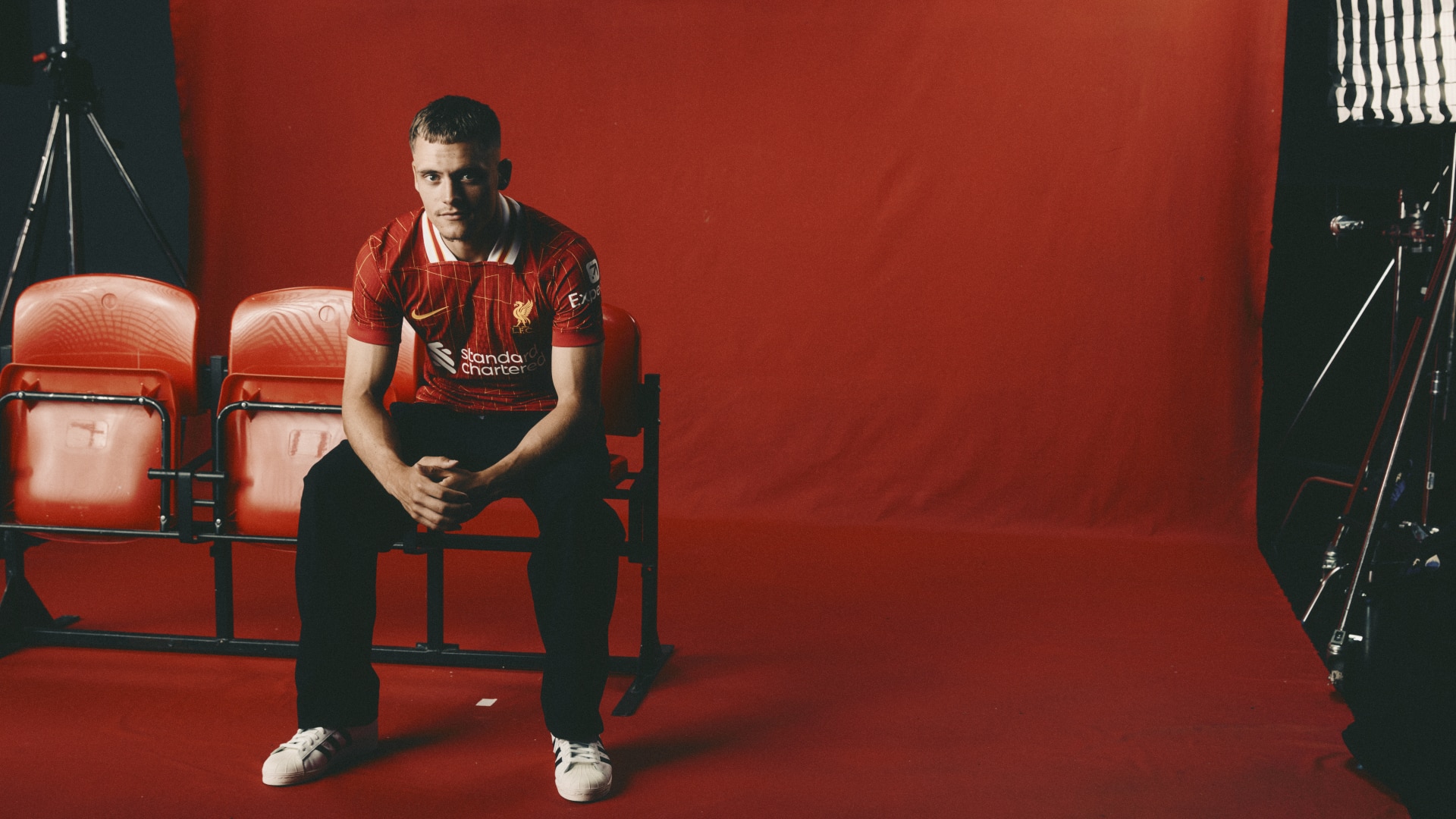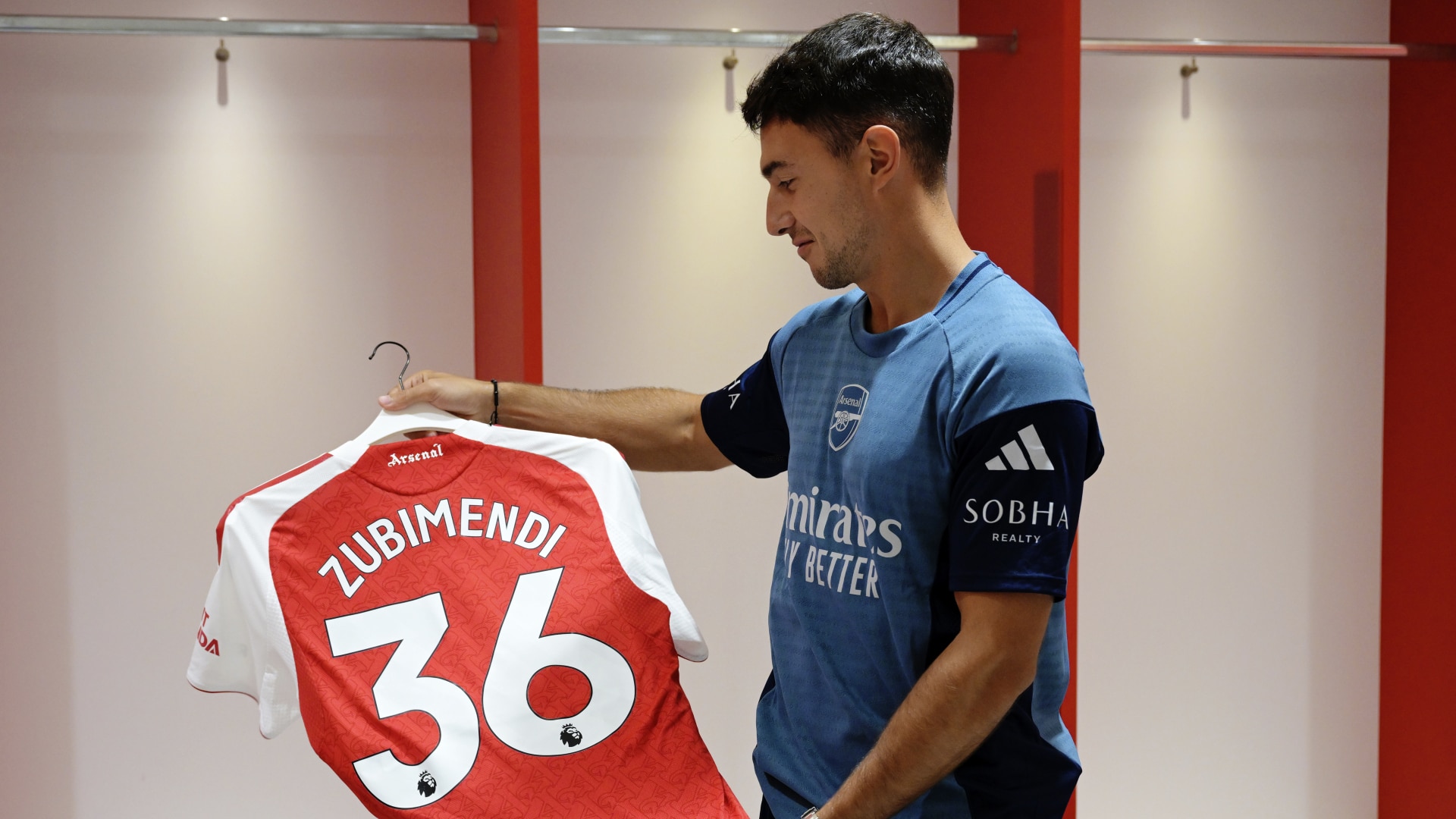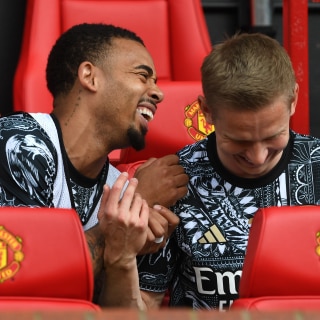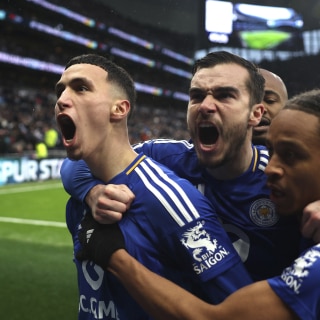Hello and welcome to the Premier Skills English podcast. This series of Football English podcasts are based around the needs of football players and football fans and will present language you need to play the game, language you need to watch the game on TV and online and language you need to travel to the UK to see a match at a Premier League stadium.
Today, I’m going to focus on language for football fans.
We’re a month away from the Community Shield which is an annual match between the Premier League champions and the winners of the FA Cup. This year, Crystal Palace will face Liverpool at Wembley. Now, this match is not a league match, but as the match is played the weekend before the season starts, it’s like an appetizer for the football feast to come.
Right now, the players have had their holidays and are returning to their clubs for pre-season. This is the time for the players to focus on their fitness and training so that they are prepared for the new season. It’s an exciting time for players and fans as the transfer window is open which means that clubs can buy, sell and loan players.
For fans, this is an exciting time. It’s a time to think about the future and what new players and new managers will bring. And that’s what I want to focus on today. I am going to talk about things that fans are excited about for the new season and I’m going to present the language that you can use to talk about things that you are excited about at three levels. I’ll start with some beginner and pre-intermediate A1-A2 words and phrases and then I’ll talk about some B1-B2 intermediate language and lastly, I’ll share a few C1 advanced phrases.
So let’s get going. I have prepared a dialogue for you to listen to between two fans who are really excited about one match or rather one pair of matches for the upcoming season.
When you listen, I want you to listen out for words and phrases that are used to express anticipation and excitement about the future and also to try to work out which matches are the ones that the speakers are excited about.
Dialogue 1
Alex: Hey mate, have you seen the fixture list? The Tyne-Wear derby’s back this season!
Jamie: I know! I’m excited just thinking about it. It’s been far too long.
Alex: I can’t wait to see St James’ Park packed out for that match. The atmosphere’s going to be electric.
Jamie: Same here. I’m looking forward to the build-up, all the banter, interviews, replays of classic moments. It’s what football’s all about.
Alex: Exactly. I can’t wait for that first tackle to fly in—proper derby day drama.
Jamie: And I can’t wait to see how the new signings handle it. It’s one thing playing in the Premier League, but a Tyne-Wear derby? That’s next level.
Alex: Yeah, there's a lot of new talent this year. I’m excited about the whole rivalry being back in the spotlight. It gives t he season a real edge, don’t you think?
Jamie: Absolutely. I’m excited to see both teams going at it again. Let’s just hope we come out on top this time!
Alex: We will. I can feel it already—this one’s going to be special.
Before I talk about the language of anticipation, which was the match that the speakers were so excited about? It was the Tyne-Wear derby which is the match played between Newcastle and Sunderland who have been promoted back to the Premier League after being relegated to the Championship in 2017 and again in 2018 to League one. They spent four seasons in League One before climbing back up to the Championship and last season made it to the play-offs and were promoted back to the Premier League.
In this dialogue, there were three different phrases that I used to express anticipation. The first was: I’m excited. The adjective excited means very happy and enthusiastic about something that is happening now or in the future. I use excited in three different ways. The first time, I just said I’m excited. So before something happens, if you are happy and enthusiastic, you can just say ‘I’m excited’. For example. The film is about to start ... I’m excited. I’m starting a new job on Monday. I’m excited.
I also said I’m excited about ... if you want to explain the reason for your excitement, you can say what is making you excited by saying I’m excited about plus a noun or a noun phrase. I’m excited about the start of the season. I’m excited about football.
The third form is slightly less common. I said: I’m excited to see both teams ... You can use ‘I’m excited to’ followed by a verb in its base form. The most common and natural sounding collocations are:
I'm excited to see ... I'm excited to see you ... I'm excited to see the new movie.
I'm excited to learn ... I'm excited to learn more about this.
I'm excited to start ... I'm excited to start the new project ... I'm excited to start my new job.
You also hear this quite a lot when a company makes an announcement. We are excited to announce that the new shop will open on Monday.
The second form I used was I can’t wait. You can use this in exactly the same way as I’m excited. You can use it on its own.
Arsenal are playing Chelsea this weekend. I can’t wait. Or you can use it with for and a noun. I can’t wait for the Arsenal match this weekend. Or you can use it with verbs, using the infinitive or to form, I can’t wait to see Arsenal take on Chelsea this weekend.
The third form I used was I’m looking forward to. This is a very common way to say that you are excited about something that’s in the future. It looks a little strange sometimes because we say looking forward to followed by a noun. So you can say: I’m looking forward to the Liverpool match on Saturday. However, if you want to talk about an activity, something that you are doing, then you’ll want to use a verb. The noun form of a verb is the -ing form, otherwise known as a gerund. So you can say I’m looking forward to watching the Liverpool match. You see, it looks a little strange because normally with to, you’d expect the base form. But when you are using this form to express excitement and anticipation, you use the gerund.
For example, I’m looking forward to swimming in the sea. Or, I’m looking forward to meeting you or I’m looking forward to seeing you.
OK, so those were the A1-A2 ways of expressing anticipation. Now it’s time to listen to a second dialogue. This time, there will be some examples of more advanced expressions of anticipation.
When you listen this time I would like you to try to hear three different phrases that express anticipation and also listen out for which clubs the speakers support.
Dialogue 2
Liam: So, your team has another new manager. Another one... that's an interesting plan.
Tom: Don't start making fun of me. At least our team didn't lose the title at the last minute, twice in two years. I have high hopes for our new manager — he has a good plan for the future. It’s not just about good feelings and TV shows.
Liam: A good plan? You say that every time. I’m dying to see how long it takes before your fans start to criticize him. September, maybe?
Tom: Keep laughing. I’m on the edge of my seat waiting to see Maddison and Mathys Tel play together. Some of the pre-season training footage looks good. And what about you? Will you nearly win the league again this year?
Liam: We’re building something special, mate ... something real. Rice was just the start. I have high hopes for our squad this season. We’ve added depth, experience... we’re not falling short again.
Tom: I hope you are right. But there is a lot of expectation on your team now. Arteta, has no more excuses if you fail.
Liam: And Frank has excuses? Come on. If you don’t finish in the top four places of the league this time, your fans will want him to be fired by Christmas. I can hardly wait for that meltdown.
Tom: You should worry about your own team when the Champions League competition starts. Let’s see how your ‘special’ team manages with more difficult games.
Liam: We are ready for the challenge! The new season is starting very soon, and I reckon we’ll hit the ground running.
Tom: We’ll see, mate. We’ll see ... We’ve got to wait till November for the First North London derby — I’m dying to shut you up. That’s all I’m saying.
Liam: Ha! I can hardly wait either. Don’t go hiding when it ends badly for you.
OK - so which teams do the speakers support? Could you work it out? I think it was quite easy. The teams were Arsenal and Tottenham Hotspur.
Did you hear the phrases I used to express anticipation? I used three phrases. The first was to have high hopes for something. This means you expect good results or some sort of success, you believe that good things will happen. We always say that we have high hopes for something so you might hear someone say they have high hopes for a person, I have high hoped for our new manager. Or you might hear someone say I have high hopes for a thing or a situation, I have high hopes for the new season.
The second phrase I used was I’m dying to ... This is another common expression and it’s more cheerful than it sounds, it has nothing to do with death, it’s just an exaggeration that means it’s something that you want very, very much. It shows that you are extremely excited about something. It’s commonly collocated with see and know. I’m dying to see the new Superman film. I’m dying to know if Arsenal is going to sign a new attacking midfielder.
The third phrase I used was I’m on the edge of my seat. This is quite a fun expression because it makes you think of a person watching a football match who’s sitting as far forwards as possible so they can get as close as possible. My kids sit like this when they are playing video games and they’re really excited. They sit right on the edge of their seats so they can get as close to the screen as possible. So we use this expression to say that we are really excited as if we’re sitting and waiting for something to happen. I said I was on the edge of my seat waiting to see how Maddison links up with the new signing. I don’t think that this is as common as to have high hopes for something or to be dying for something, but it’s still a useful phrase.
Now it’s time for the third conversation. This time, there are three people speaking. As well as listening for words and phrases that express excitement about the future, which in this conversation will be more advanced phrases, I want you to listen out for what the three friends think will make this season special.
Dialogue 3
Jamie: Right, this has to be our year. We’ve come so close two seasons running — I’m on tenterhooks thinking about how close we came ... twice ... and what we might pull off this season.
Ian: Close doesn’t win you trophies, mate. Let’s not forget — Slot walked in after Klopp, and still brought the title home. No one saw that coming. I’m champing at the bit to see what he does with a full pre-season under his belt.
Cathy: Yeah, fair play, Tom. Didn’t think you’d pull it off after Klopp left. Still — we had an off season. That doesn’t mean we’re done. Everyone’s waiting with bated breath to see what Pep does next.
Jamie: You’ve said that before, though. "Just a blip", "we’ll be back" — sound familiar? It feels like the situation is starting to change now. And I think we’re right there, knocking at the door.
Ian: You’ve been knocking for two years, mate. Sooner or later you’ve got to break it down. You have to actually win it. Klopp got the foundation right and then Slot found the right balance, and got the job done. That momentum’s powerful.
Cathy: You’re both getting carried away. We had a rough patch, sure, but don’t act like City’s era is over. I’m champing at the bit to shut everyone up. Pep’s already making moves — you’ll see.
Jamie: Every season we’ve improved. The players are hungry, the core of the team is strong, and we aren’t just depending on lucky moments — we perform well consistently now. Honestly, I’m waiting with bated breath for that first big game. It really sets the tone for the season.
Ian: I get it, though. We’re all nervous. Slot’s done the job once, but the pressure’s different now — defending a title a different beast. I’m on tenterhooks just thinking about the first month.
Cathy: Same here. If we start slow again, the whole league will smell blood.
Jamie: Exactly. One slip and the whole thing tilts. It’s shaping up to be a proper three-way scrap — and I genuinely think this time we’re ready.
Ian: You’d better be. 'Cause we’re not letting go of that trophy without a fight.
Cathy: And we’re not done chasing it. Not by a long shot.
OK - this conversation was a bit more advanced and the language of anticipation was much tougher. But before I get to the language, I asked you what the three friends think will make this season special. The answer was, as fans of Liverpool, Arsenal and Manchester City, they thought that this season will be a three horse race. I think in the past, there have often been two teams fighting it out. This season, I think that Liverpool, Arsenal and Man City fans will all feel that their team has a good chance.
The first of the advanced phrases for expressing anticipation that I used in the conversation was to be on tenterhooks. This is a really old expression and I will admit that before I researched it for this podcast, I had no idea what a tenterhook was. I have used the expression to be on tenterhooks but I had never looked up the origin of the phrase. Apparently, a tenterhook was a special hook used in the textile industry, by people making cloth to make clothes and sheets. So when making textiles, at some point the fabric is stretched over a frame and pulled tight and fixed using tenterhooks. So if a piece of fabric is on tenterhooks, then it is really tight and in a state of tension. So somehow, we started using this phrase when people were tense, as if their nerves were pulled tight as if on tenterhooks. So if you’re feeling really excited and tense about something, a sort of nervous excitement, you can say that you are on tenterhooks.
The second of the advanced phrases was to be waiting with bated breath. This means you’re waiting for something in an excited state of anticipation. The phrase was first written down by Shakespeare and the word bated is a shortened form of abated which means reduced. So if you reduce your breath, you hold your breath. So if you’re really excited about something, you are sometimes so tense, you hold your breath. It’s like you forget to breathe. This is bated breath. Nowadays, when we use the idiom to be waiting for something with bated breath, we don’t mean we’re holding our breath, it just means we’re really excited.
The third of the advanced phrases was to be champing at the bit. This again, just means to be in a state of nervous and excited anticipation. The phrase comes from horse riding. A bit is a piece of metal that goes in the horse's mouth. It’s part of the harness that a rider uses to steer the horse. Now, when a horse is nervous, sometimes they chew noisily on their bit. This is champing at the bit. If you imagine the start of a horse race, before the race starts, all the horses are lined up and really nervous and excited to start the race. At this time, the horses often champ on their bits as they prepare to run. So when a person says they are champing at the bit to do something, they are like a horse on the starting line before a race. They are nervous and excited and really want to do something.
OK, I’ve covered a lot of language of anticipation in today’s podcast and as all of the language is broadly used the same way, I’m not going to set you a language challenge. Apart from asking you ... what are you excited about this season? What are you looking forward to? What can’t you wait for? What do you have high hopes for? What are you dying to see? What’s got you on the edge of your seat? What are you on tenterhooks about? What are you waiting for with bated breath? And what’s got you champing at the bit? Share your ideas about the things that you’re excited to see this season in the comments section on the page for this podcast on the Premier League British Council website.
Before I finish, there’s just time for a quick football phrase. The phrase I am looking for this week is ***-******. This describes the time that the players and managers use before they start their new campaigns to get in shape and learn to work together with their new teammates. There’s a really nice article on the Premier League website with videos from social media that the different clubs have shared of their teams getting back to work after their holidays.
If you think you know what the football phrase is, leave it in a comment on the page for this podcast on the Premier League British Council website and I’ll let you know if you’re right.
And that’s all I have time for today. Before I finish, I just wanted to say that I hope you found this podcast useful, and I hope everyone stays fit and healthy and safe.
Bye for now and enjoy your football.













Football phrase: ***-******
I'm really excited about the competition between Liverpool, Man City, and Arsenal.
I'm looking forward to the next match between my favorite club (Legia Warsaw) versus someone from the Premier League (Aston Villa or Nottingham Forest).
I've high hopes for that Manchester United will finally rise again.
I'm waiting for Fabianski to return to the starting goalkeeper position for West Ham United.